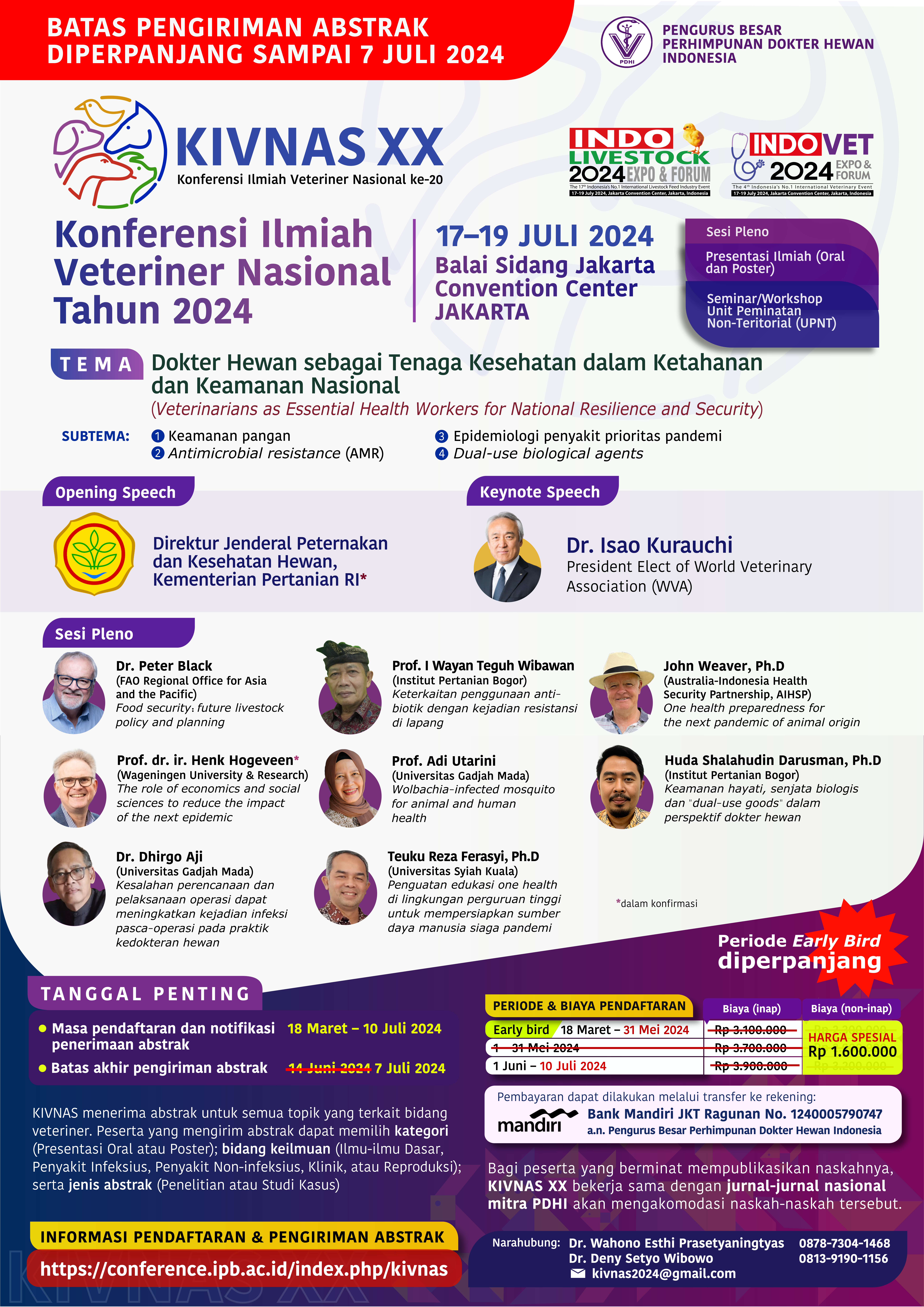Bdellovibrio bacteriovorus: A Boost for Hematological and Gut Health in Salmonella enteritidis-Infected Mice
Keywords:
Salmonella sp., B. bacteriovorus, S. enteritidis, predator-prey interaction, intestinal health, hematological profilesAbstract
Background: Bacteria in the environment are naturally the target of predators, including various types of prokaryotes.
Objectives: This study aims to determine the effect of feeding Bdellovibrio bacteriovorus (Bb) isolate against Salmonella enteritidis (SE) inoculation in intestinal villi of mice models.
Methods: Sixteen mice were used and were divided into 4 groups, namely the control with placebo (D0), the SE (D1), the SE+Tiamphenicol (D2), and the SE+Bb inoculation group (D3). Inoculation of SE was carried out intraperitoneally at a dose of 2.5x108 CFU, and B. bacteriovorus feeding treatment was given orally as a single dose containing 1×107 CFU. On the 5th day post-treatment, all groups were euthanized and blood samples were taken for examination of the hematological profiles in intestinal organs. Data analysis was performed using one way ANOVA test and Duncan's post hoc test (P<0.05).
Results: The results showed that there was a significant increase in the D3 group for the variables of leukocytes, lymphocytes, and neutrophils. Histomorphology analysis indicated that feeding of isolate inhibited the destruction of epithelia and enterocytes in duodenal tissue.
Conclusion: It was concluded that feeding of B. bacteriovorus can improve hematological value and the proliferation of villus in the intestine in SE-inoculation mice.



